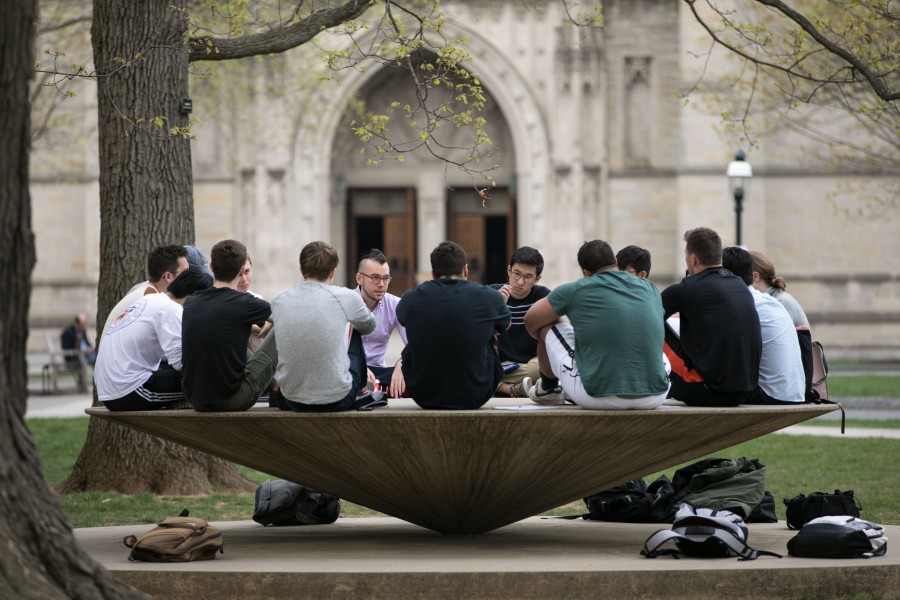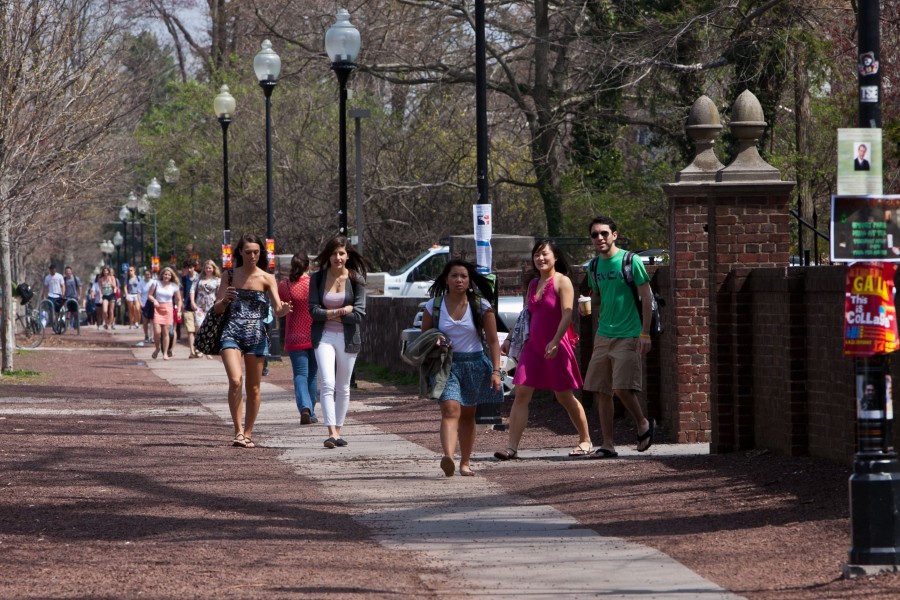Princeton-Weimar Summer School for Media Studies
Media Subjects: How Does Media Address the Individual?

Media Subjects: How Does Media Address the Individual?
Media Subjects: How Does Media Address the Individual?
Princeton-Weimar Summer School for Media Studies
German Department (Princeton University)
Faculty of Media (Bauhaus-Universität Weimar)
Princeton, NJ, June 16-21, 2024
The Princeton-Weimar Summer School for Media Studies – a collaboration between Bauhaus-Universität Weimar and Princeton University – returns to Princeton in 2024 for its tenth installment. The 2024 session will be devoted to re-considerations of the ways media addresses, formats, and brings about “media subjects.” How do new media phenomena require a reworking of older paradigms of the relationship between media and subjects? Might they suggest new paradigms altogether?
The 2024 Princeton-Weimar Summer School for Media Studies – which will be directed by Nikolaus Wegmann (Princeton) and Bernhard Siegert (Weimar) – will attempt to trade old against new conceptualizations of what can be called “media subjects”. We invite applications from outstanding doctoral students throughout the world in media studies and related fields such as film studies, literary studies, philosophy, art history, architecture, sociology, politics, the history of science and visual culture.
All application materials should be sent via email to: @email and must be received no later than January 1, 2024.
Coordinators
Moritz Hiller (Weimar), Peter Makhlouf (Princeton)
Please submit all inquiries to: Peter Makhlouf
Annual Topic

Image provided by Princeton University Office of Communications.
The relationship between media and subject has long been approached with a critical attitude. Cultural critique (Kulturkritik) has understood media as endangering the sovereignty of the subject and causing its alienation. Foucauldian approaches to media studies have disputed the tacit assumption in Critical Theory of an a-historical subject, which was alienated from its authentic core of experience. By contrast, Foucauldian approaches understood the very formation of the subject through analyses of power and its technologies. These analyses of media have since been seen as an alternative to earlier models of humanistic thinking. Accordingly, media has often displaced the subject as the central term in theories of subjectivity.
The lasting impact of such critical approaches shows how relevant they still are. But from the advent of the personal computer, the rise of the internet, and the democratization of digital media, to the expansion of global networks of surveillance and marketing, to 21st century technologies like smartphones and other “smart” devices, the landscape of media has transformed radically since Foucault first published Discipline and Punish in 1975. It is possible that many of these new phenomena can be subsumed under older approaches to the study of media. They may even offer ways to rethink or update older approaches. But newer phenomena in the history of media may also give rise to new approaches to the study of media altogether. Such renegotiations can not only change our understanding of contemporary media, but also inform studies of a more historical nature as well.
How do new media phenomena require a reworking of older paradigms of the relationship between media and subjectivity? Might they suggest new paradigms altogether – like for instance media-ecology, or media-anthropology? How might such phenomena suggest renewed approaches to more historical media phenomena? Or can studies of historical media change how we understand contemporary phenomena? Phenomena that raise such questions could include but are not limited to:
- Digital self documentation, “life logging,” blogging, and digital diaries
- Algorithms, quantification, and sharing of data; new paradigms of surveillance (e.g. consumer profiles, face recognition), the marriage of surveillance and the market
- The gig economy, the mediation and atomization of work relations
- The “smart home” and other “smart” devices, the penetration of media into everyday objects, the “internet of things”
- The navigation of virtual space, discourses of architecture and urban planning applied to digital media
- The idea of the “user”; user friendliness or unfriendliness; users as opposed to readers, viewers, etc.
- The database as a model for the organization of knowledge; the dehistoricization of the subject through media
- Gendered, gendering, or dis-gendering media
- Race and media, racialized and racializing media, e.g. white-balance
- COVID-19’s effect on work and the media landscape
- Online anonymity versus “clout” and “influence”; memes, irony, trolling
- Media addiction and flight from media
The Princeton-Weimar 2024 Media Summer School invites proposals that account for such contemporary phenomena in their approaches to understanding the relationship between media and subject.
About the Summer School

Image provided by Princeton University Office of Communications.
The Princeton-Weimar Summer School for Media Studies provides advanced training in the study of media and cultural techniques. Focusing on one special topic annually, it affords a select group of fourteen graduate students the opportunity to work with distinguished international scholars from all fields of media studies in an intimate and highly focused context and provides a platform for participants to engage in dialogue with other doctoral students from around the world working in similar or related fields. The directors of the summer school lead morning seminars. Afternoon sessions taught by the summer school faculty provide further opportunities for interaction and participation. Evening events, such as lectures and film screenings explore other facets of the annual summer school topic.
Participants will receive a reader with texts and material for the seminars. The working language of the summer school is English.
How to Apply

Goethe and Schiller Goethe Monument - Weimar
All applications should be submitted electronically in PDF format and should include the following:
- Letter of Intent indicating academic experience and interest in the summer school’s annual topic (max. 300 words);
- Curriculum Vitae (max. 2 pages);
- Abstract of a possible presentation at the Princeton-Weimar Summer School for Media Studies (max. 450 words); and
- Contact information of two potential references (name, institutional address, email).
Please use the following naming convention for your application files:
- Lastname_Letter_of_Intent.pdf
- Lastname_Curriculum_Vitae.pdf
- Lastname_Abstract.pdf
- Lastname_Contact_Info.pdf
All application materials should be sent via email to: @email and must be received by January 1, 2024. Applicants who have been admitted will be notified in February 2024.
Once admitted, applicants are required to transfer the participation fee, which covers tuition, room and board, as well as all study materials during the entire week of the summer school. The payment of 600€ should be received by February 29, 2024 to guarantee a spot in the program. A limited amount of travel funding will be available upon application.




